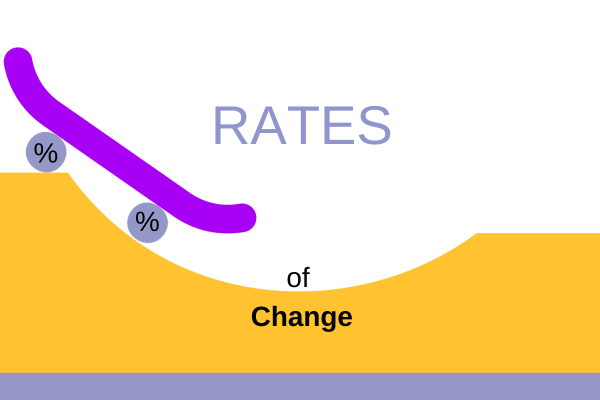Blog

By Jan Allen
•
October 3, 2024
The news on the street says you no longer have an obligation to pay a buyer’s agent. I know that a few sellers of mine called me up and were initially excited about this news, but is this ruling a good thing for sellers? Let’s discuss the real impacts of this ruling on the real estate market and what you need to know. Until now, when a final sales price was reached, the contract price included both the listing agent’s and the buyer agent’s compensation which has always been negotiable and paid out of the buyer’s funds. Will Sellers sell their homes quicker and for higher than their list price? Can this encourage or discourage buyers from entering the marketplace? Are unrepresented buyers a risk to sellers? Are comps accurate without buyer compensation info included? What’s the impact to pricing? REVIEW OF THE NAR CHANGES: The changes that came about as the result of the NAR settlement, meant that a seller no longer was obligated to negotiate a buyer’s agent compensation from the outset. Prior to Aug 17, 2024, a listing agreement had both buyer agent and seller agent’s compensation baked in. That’s changed and now, at the time of signing a listing agreement, the seller may decide not to offer a buyer’s agent compensation. By delaying the seller’s decision to pay a buyer’s agent before an offer comes in, the buyer market has bifurcated and demand has changed because the law effectively enables the seller to pay nothing to a buyer’s agent. As the changes take effect, the impacts are just now being felt. So let’s dissect each type of buyer in a bit more detail because they all have their place. BUYER REPRESENTED BY BUYER'S AGENT: Scenario: A buyer will utilize an agent to represent them. They will have had to sign a representation agreement that states that if the seller is not going to pay the buyer’s agent, then the buyer agrees to pay their agent’s brokerage directly. Note: This mimics the way that real estate was operating before the changes EXCEPT now, the buyer is required to sign the Buyer Representation agreement before showing a property. Impact: In this situation, the buyer is being represented by their own agent whose sole purpose is to protect, inform, and advise the buyer during the complete process. If the seller chooses not to pay a buyer’s agent compensation, the buyer may not be able to afford to purchase the home because a lot of times the out-of-pocket cash may be limited. Remember that in the old scenario - the buyer in essence was funding the compensation through the contract price and the amount, less down payment, was rolled into their loan. DUAL AGENCY: Scenario: A buyer approaches the listing agent at an open house (very common) and says, “hey, can you represent me and write an offer?” The listing agent gets all the buyer’s financial data for the offer and knows how much they are willing to pay for the house after also knowing why the seller is selling and what they will ultimately take. This scenario usually works best with very experienced buyers and sellers. Note: The listing agent and all parties agree, in writing, to dual agency. This means the listing agent may be incentivized by possibly receiving two compensations. Agent has a brokerage agency relationship with both the buyer and seller and owes his/her full fiduciary responsibility to both parties. Fiduciary duties are legal obligations that require an individual to act in the best interests of another party and not their own interests. This includes: loyalty, confidentiality, good faith, disclosure, duty of care, obedience and accounting equally. The agent cannot advise either party about an Offer or Counter-Offer and can only referee during conflicts. The agent provides the appropriate forms for real estate, but not providing any advice to either party in filling them out, advice regarding inspections, etc. Impact: When buyers and sellers are not advised on a transaction, there’s a risk of a lawsuit. UNREPRESENTED BUYER Scenario: A new buyer thinking, “How hard can this be? I look at Zillow…” approaches the listing agent and says that they want to put in an offer and “No,” they don’t have an agent nor do they want one. The listing agent hands over many pages of the requisite State required forms for the offer and then once in contract, supplemental documents and disclosures. Note:: The buyer has questions about what certain items mean, but by law, the listing agent IS NOT ALLOWED to advise the unrepresented buyer. You have to remember, that in this scenario, the listing agent’s fiduciary responsibility is ONLY to the Seller. The buyer, not really knowing what he/she is doing, provides a failed attempt at an offer to the listing agent who may determine that there’s no good way to counter it because of problems with conflicting information, missing information, etc. In that case, the listing agent may want to work with the Seller and write an offer that the Seller would accept and provide it back to the Buyer. In other words, the listing agent is only considering the seller’s needs, wants, and desires and now also may have buyer’s confidential information that the seller can use to his/her benefit only. The buyer accepts, counters, or walks away. Impact: Potential lawsuit. If the parties get into contract, the buyer has no one to guide him in this transaction. The Seller and the Listing Agent provide the documentation but are not allowed to provide advice leaving the buyer without the good counsel to make sound decisions that are necessary and important with regards to purchasing a home that could easily cost half a million dollars to multi-millions of dollars. This is reminiscent of how buyer’s agency came along - Easton v. Strassburger. Last week's overview of NAR Settlement Other Impacts of not paying a buyer’s agent compensation Scenario: The offer comes in and there’s an offer price and a request for the seller to compensate the buyer’s agent. Note: The Seller has some choices: Accept the request as stated in the offer. The offer will show how much they are asking the seller to pay which is usually a percentage. Counter the request to a lower amount or counter stating that NO COMPENSATION will be paid. Impact: In this situation, the buyer is being represented by their own agent whose sole purpose is to protect, inform, and advise the buyer during the complete process. If the seller chooses not to pay a buyer’s agent compensation, the buyer may not be able to afford to purchase the home because a lot of times the out of pocket cash may be limited. Remember that in the old scenario - the buyer in essence was paying the commission through the contract price and the amount, less down payment, was rolled into their loan. Some of the more common Impacts: Reduced buyer pool. Buyers may be discouraged by not being able to afford to pay their agent out of pocket, which could reduce the number of potential buyers for the home. This could be especially impactful for first-time homebuyers who are often already struggling to secure sufficient funds to purchase and pay for their closing costs. Skewed pricing and valuations. Some sold prices will include the buyer’s agent compensation where the seller paid and some prices won’t. This matters when agents are using comps to price your home and appraisers are valuing the property. Lower home prices. Due to the reduced number of buyers, the lower demand may dictate lower net profit for sellers. (Classic Supply and Demand) Competitive disadvantage. All sellers are competing with the same pool of buyers so if one seller is offering buyer’s agent compensation, then that seller has the upper hand with buyer Stories are starting to come out about how this is playing out. My Transaction Coordinator was privy to a listing where two offers came in, both asking for the seller to pay the Buyer’s agent’s compensation. The seller countered with NO OFFER OF COMPENSATION. Both offers walked! REMEMBER….real estate is a constantly changing Industry. Even highly experienced buyers are not able to stay on top of the evolving laws, rules, regulations and market changes in order to be well informed. That doesn’t even include that there are a myriad of issues that easily arise in most transactions that require considerable time and effort to evaluate and resolve satisfactorily without potential penalties (such as a buyer or seller breaching the contract in any way which would put buyer and/or seller at risk). Hopefully, this has given you some food for thought. Historically, the buyer’s funds have paid for both agents’ compensation in the contract price. As with all change, not all changes are good without assessing areas of risk. Seller Beware Next up is what buyers need to know... ************************************************ Some Good News on Interest Rates!!!! The Fed just lowered the interest rate by half a point and have indicated that they will do an additional two more rate reductions by year end..

By Jan Allen
•
October 2, 2024
There has definitely been a sea of change that has occurred which is now reflected in plain sight, but there’s more to come. This blog will be one of a series that you should understand. This first one will be just the overview of changes, followed by a blog on seller impacts, buyer impacts, and what we’re already seeing happen and more. So what changed? Up until August 17, 2024 (just a few weeks ago), the price of a property for sale through the MLS included an offer of compensation to the buyer’s agent. The compensation rates were part of the listing agreement – a negotiated compensation where usually half was paid to the buyer’s agent. The amount offered to a buyer’s agent was listed in the MLS. As part of the settlement, NAR agreed to the following which became effective August 17th of this year. Agents are required to sign a written Buyer Representation Agreement with their Buyer Clients, before taking them on a home tour, where it specifies that the buyer is responsible to pay their agent unless the Seller agrees to compensate their buyer’s agent. Seller paid Buyer Agent compensation shall no longer be published so it is unknown how much or if any Buyer Agent compensation would be paid at all, potentially leaving the compensation issue the responsibility of the actual Buyers. Agents must advise their clients that compensation was, is, and always has been negotiable. What forced the changes? The “clear cooperation” rule was at the heart of the lawsuit Burnett et al v. The National Association of Realtors et al which found that NAR and real estate brokerages had violated antitrust law by conspiring to fix prices and restrain trade. “allegations that [NAR] have anticompetitive rules that require home sellers to pay commission to the home buyer’s broker.” https://www.mow.uscourts.gov/ca-cases/19-cv-332 The plaintiffs alleged that the NAR clear cooperation rule forced sellers to list their homes on the MLS. They further argued that it forced home sellers to pay higher compensations than they otherwise would giving NAR and its members an unfair advantage in the real estate market, driving up compensation rates. It was also alleged that buyer’s agents would steer buyers away from properties not offering a high compensation which was a form of price fixing. “Both plaintiffs allege that Clear Cooperation was created to stymie competition and has been used to maintain a monopoly on the listing service market, while NAR contends the policy is meant to maintain a more transparent property market with protections against misinformation and fraud.” https://www.rismedia.com/2024/07/23/ The key here, and at issue, is that NAR (National Association of Realtors) had what was called a “clear cooperation” rule. The rule required listing brokers to submit their listings to their local multiple listing service (MLS). The publication of the listing with an offer to pay a buyer's brokerage was a unilateral offer of compensation to other participants giving all NAR members an equal opportunity to sell a listed home, regardless of whether they are with the listing broker or not.

By Jan Allen
•
October 1, 2024
It was the best of times when they were neighbors. They dined together --socialized together -- and took their morning walks along the trails together. They were friends because they shared so much in common. They were older and wiser, but in the end to their stories diverged greatly. Though these neighbors were in their 90's, their stories might be a cautionary tale for anyone. Living to 90 or 100 isn't a guarantee. This is based on a true story. Robert and Pat lived across from Bea in a beautiful suburb where they raised their families side by side. Their longtime friendship began years ago and only ended this year when each passed peacefully away. Robert Jr. and his siblings mourned the passing of their parents and then got around to the emotional task of tying up their parents' finances. As is often the case, the adult children were not privy to their parents' financial situation. They discovered their parents had a reverse mortgage which is not necessarily a big deal. When the signers on a reverse mortgage die, the children can buy the home themselves by paying the loan balance which can be less than market value or they can sell the house and net the difference between the sold price and the loan amount (plus closing costs).

By Jan Allen
•
September 30, 2024
I’m hearing talk in the Industry about some Agents wanting to bring back Wrap-Around Mortgages to the market. This approach is one method some agents pursue in order to creatively help Sellers and Buyers find a way around these high interest rates. Having been in both the Mortgage Finance and Real Estate Industry for over 40 years, I’ve seen a lot of things. This is one of them and I’ve been expecting to see this topic come up again. I personally do not advocate this approach and I'd like to show you the risks. So....PROCEED WITH CAUTION. Don't get bamboozled! So, what is a Wrap? A “Wrap” is actually called either a “Wrap-Around Mortgage” or an “AITD” which literally means “All Inclusive Trust Deed.” Ok……… In other words, this is a type of secondary mortgage financing where the Buyer will make monthly payments directly to the seller, often at a higher interest rate. You may start to see this topic come up because we may be heading into a bonafide recession. For example, Seller's current mortgage is at 3.5%, but the Seller charges 6% to a Buyer so that the Buyer can have a lower interest rate and lower monthly payment than the 7.50% current market rate. This is the basic concept. In today’s market, a Seller wants a lower payment on their new house AND they may want to pull out equity from their existing home to use as a larger downpayment on the new home. The Wrap-Around (AITD) is a brand new, recorded Deed of Trust which includes the balance due on the existing Mortgage Note AND the equity the Seller may have pulled out of the existing home for their own purchase. This is essentially comparable to “Seller Financing”, but with a twist. The Seller holds the Note and the Buyer pays the Seller directly. The Seller pays the original, existing mortgage plus the 2 nd Wrap-Around Mortgage Note for the equity the Seller used, ostensibly towards the purchase of a new property. Is a Wrap-Around Mortgage legal? YES. However, they are not commonly used due to several factors which we shall discuss below. Is a Wrap-Around Mortgage an Assumable Loan? NO. An assumable mortgage is where the Buyer literally qualifies for, and assumes the existing mortgage loan. The Buyer then assumes the legal responsibility for paying the first-lien Note. Who is liable in a Wrap-around Mortgage? With a wrap transaction, there are two separate and independent sets of payment obligations. As a result, the Seller remains fully responsible for payment of this debt. So what are the benefits and the risks? BENEFITS: BUYER If, for instance, the Buyer’s DTI (debt to income) is insufficient to secure a traditional mortgage loan at today’s rates, they might qualify for a Wrap. Buyer can purchase a higher priced house with a lower monthly payment. NO closing fees usually on a Wrap-Around Mortgage. SELLER Sellers can earn a monthly profit that they can then use towards payment on their next mortgage where they may have a higher interest rate and thereby lower their new monthly mortgage payment. It opens up a larger potential Buyer pool in order to sell the home at a more desirable price. Property Title remains in the Seller’s name RISKS: Default - Buyer Failure to Make PaymentsThis is a major concern, because if the Buyer is unable to pay the Wrap mortgage, the Seller remains liable to pay the existing 1 st mortgage. If the Seller is unable to pay that mortgage the property may be foreclosed upon. Buyer will be forced out of the property. Default - Seller Failure to Make PaymentsIf the Buyer makes the direct payments to the Seller, but the Seller does NOT use that money to pay the original mortgage, the property can still go into foreclosure against the Seller, because the Title remains in the Seller’s name. This would then also ultimately impact the Seller's credit score. The Buyer would also be forced out of the property. Due on Sale RiskMortgages contain “due-on-sale” clauses which gives the lender the right to ask for the entire loan balance and demand repayment once the loan has been sold or transferred. A Wrap-Around is highly vulnerable to this if the lender decides to execute this right. The Seller needs to check with their current lender to determine if they will allow a Wraparound Mortgage BEFORE the Realtor markets this concept. If the Note does have this clause in it the “due on sale” clause could be triggered at the INITIATION of the Wraparound mortgage. The actual Due-on-Sale clause as written in the Fannie Mae/Freddie Mac Uniform Deed of Trust reads: “If all or any part of the Property or any interest in the Property is sold or transferred (or if Borrower is NOT a natural person and a beneficial interest in Borrower is sold or transferred ) WITHOUT Lender’s PRIOR WRITTEN CONSENT, Lender MAY require immediate payment in full of all sums secured by this Security Instrument.” In other words….The Seller must confirm with the existing Lender that they would allow a Wrap-Around Mortgage (AITD). If all of the parties decide to proceed with the Wrap-Around Mortgage without prior Lender approval, then it would be wise to have both the Buyer and Seller sign an Agreement that all of the risks are known and understood and they still agree to proceed with the transaction. Breach of ContractIf the Seller does NOT get Lender approval to do the Wrap-Around Mortgage and the Lender exercises the Due-on-Sale clause, the Buyer will lose the home as a result of the Seller’s foreclosure. Consider these 2 questions…………How long do you, as the Seller, want to be at risk of a potential Buyer default? How long do you, as the Buyer, want to be at risk of a Seller default because he/she did not forward your monthly payments to the Lender on the 1st Mortgage? While this could certainly be beneficial to both the Buyer and Seller, it is very important to get legal advice before going down this road. This is definitely a highly creative avenue in which to buy and sell a home, but it is NOT a course you should take lightly. Although many people have used Wrap-Around Mortgages, hopefully their Realtor and Mortgage Advisor will recommend that their real estate client solicit legal advice before proceeding with this type of transaction.



Jan Allen
Realtor/Broker
Samson Properties
Serving Virginia, Washington, DC & Maryland
VA #0225097826 & VA #022603431
DC #BR98366121 & MD #620724

© 2025
All Rights Reserved I Jan Allen Homes I Samson Properties
New Paragraph
Real Estate Design By Bullsai












